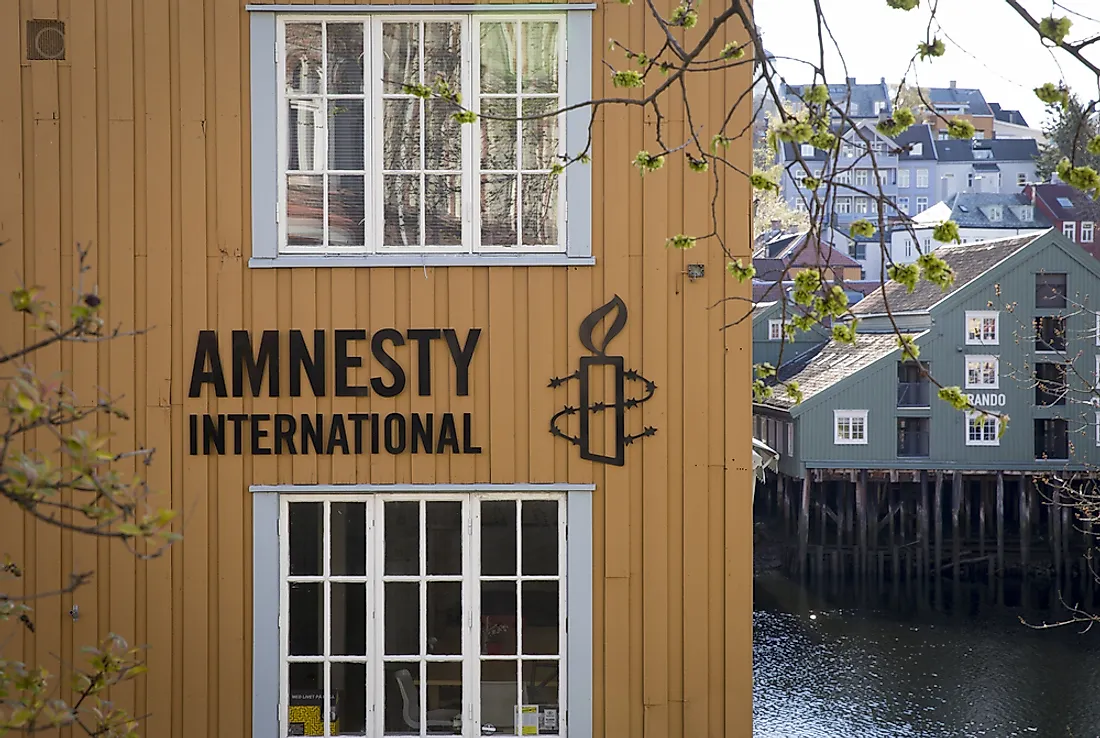Where Is The Headquarters Of The Amnesty International Located?

Amnesty International is an independent organization based in London that deals with human rights issues across the globe. The organization was created in 1961 by Peter Benenson, a labor lawyer from England who was spurred into action when he heard about how two Portuguese students had been arrested and jailed for seven years for expressing their opinions on liberty. The organization is involved in the fields of media attention, legal advocacy, lobbying, direct appeals campaigns, and research. Amnesty International is against capital punishment because it is an irreversible denial of human rights. Amnesty International received a Nobel peace prize in its efforts to defend human rights and dignity against torture. It was also awarded the 1978 UN prize in the field of human rights. The organization has grown over the years to become an international organization with close to 7 million supporters from around the world.
Location
The main headquarters of Amnesty International is located in London but the company has other branches in different countries in all continents around the world. Some of the regional branches outside England already or in the process of being set up in the future include Brussels (Belgium), Moscow (Russia), and Geneva (Switzerland) in Europe. There is Hong Kong (China), Bangkok (Thailand), and Jakarta (Indonesia) on the Asian continent. In Africa, their regional offices are located in Johannesburg (South Africa), Dakar (Senegal), and Nairobi (Kenya). In the Middle East region, they are found in Tunis (Tunisia), Beirut (Lebanon), and East Jerusalem (Israel). In North America, they are found in New York (US), Mexico City (Mexico), and Washington DC (US). The sole office in South America is found in Lima (Peru).
Structure and Principles
Volunteers run a huge section of the Amnesty International from around the world, but at the same time, the organization makes use of professional and paid experts like lawyers of great repute who have been known to win most cases. The staff is organized into groups each dealing with a specific region of the world, and there is a board of directors that oversees the activities of each group as well as coordinating events. The principles that govern Amnesty International is freedom of conscience, and their primary focus is on prisoners who have been denied their human rights because they differed with the opinions of the majority or the sitting government. Amnesty International is committed to ensuring that no violence is meted out on individuals who try to express themselves without injuring anyone. However, they never meddle with politically charged situations.
Objectives of Amnesty International
Amnesty International mainly focuses on governments since they are the ones that oppress many people within their nations. Other targets of the organization include private entities and non-governmental organizations that overstep their mandate in human rights violations. There are six main objectives that form the foundation of Amnesty International. The first one is the rights of children, women, and minority groups within a community. The second one is the complete abolition of torture. The third one is the abolition of the death penalty in all countries. The fourth one focuses on the rights of the refugees. The fifth pillar of Amnesty International deals with the rights of prisoners of conscience, and lastly, the sixth one is about the protection of the human dignity.
Achievements
There have been some significant wins and progresses that Amnesty International has achieved over the years. Their biggest win is the awareness it has created around the globe on the importance of respecting basic human rights. Its role as an independent watchdog has improved conditions of people in places that were once considered havens of oppression.











